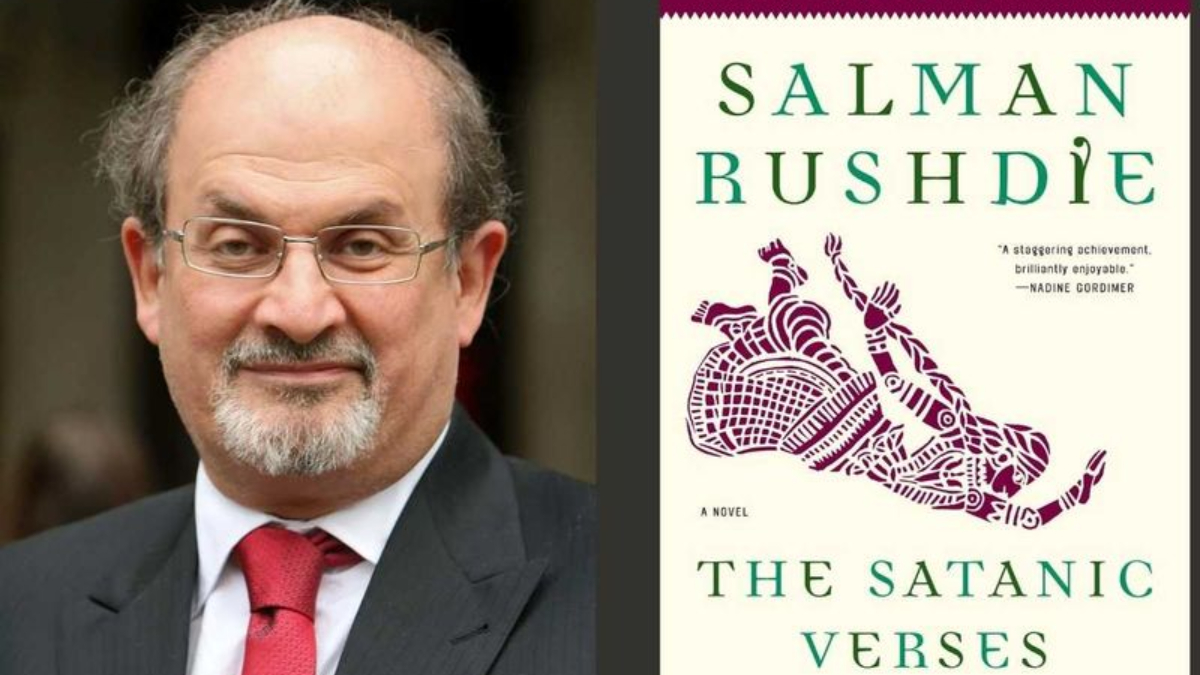Muslim groups protest against the return of Salman Rushdie’s ‘Satanic Verses’ after Delhi HC lifts import ban | File Photo
Mumbai: The Delhi High Court’s order to lift the ban on the import of Salman Rushdie’s controversial book ‘Satanic Verses’ has led to heavy opposition from the Muslim community.
As the book is gradually returning to bookstores across the country after almost four decades, various Muslim organisations have demanded to reimpose the ban on its import.
The ban on the import of Satanic Verses was lifted after the Delhi High Court passed an order allowing the petitioner to “take all actions in respect of the said book.”
The petition was filed by Sandipan Khan in 2019 after he was unable to import the book and the notification imposing a ban on the import was not available with the chairman of Central Board of Indirect Taxes and Customs.
Since the government body could not produce the notification dated October 5, 1988 to the respondent or the court, the Delhi High Court observed that, “We have no other option except to presume that no such notification exists, and therefore, we cannot examine the validity thereof and dispose of the writ petition as infructuous.”
The court order has sparked a debate about the rationality of the import ban on the book. The book had faced severe opposition from the Muslim community which accused it of being “blasphemous” immediately after it was published in September 1988.
The criticism of Mohammad Paigambar and other Islamic figures in the book was met with violent protests across India and other countries. This resulted into Rajiv Gandhi led Congress government imposing an import ban on the book, although multiple Congress MPs had opposed the ban at that time.
Recently, Congress leader P. Chidambaram, who was serving as the Minister for State for Home Affairs in 1988, reportedly reiterated his stand that the ban was a mistake. Similarly, Lok Sabha MP Shashi Tharoor had also reportedly welcomed the court’s decision and said that Indians should have the freedom to read Rushdie’s work and form their own opinions.
While Satanic Verses is gradually returning to the bookstores across the country, there is disappointment among the Muslim community over the lifting of the import ban. After Delhi’s Bahrisons Booksellers announced restocking of the book and Pune’s Book World also announced availability of the book, various Islamic organisations have come out to oppose the move and demanded reimposing the ban.
Maulana Yasub Abbas, general secretary of the All India Shia Personal Law Board, criticised the availability of the book and appealed to the Indian government to ensure that the ban on the book remains firmly in place.
“The book mocks Islamic views, insults Prophet Muhammad and his companions, and hurts sentiments. Allowing its sale poses a threat to the country’s harmony. I urge the prime minister to impose a complete ban on this book in India,” he said.
Saeed Noori, president of Mumbai-based Raza Academy, alleged that the government intended to lift the ban only on Satanic Verses while over 50 books are banned in the country.
“Around 12 Muslim youth had attained martyrdom in Mumbai while fighting for the ban on this book and it is shameful that the ban is being lifted so easily. This is like rubbing salt in the wounds of Muslims,” he said demanding that the ban should be continued.
Maulana Mufti Shahabuddin Razvi, national president of the All India Muslim Jamaat, warned of protests against the book calling it untolerable. “This book insults Islam, Prophet Muhammad, and several Islamic figures. Its content is so offensive that it cannot be repeated. Allowing this book in the market will disturb the nation’s atmosphere,” he said.
On the other hand, some reformist Muslim activists and organisations said that the community should ignore the book and should not agitate against the lifting of ban. Javed Anand, national convenor of the Indian Muslims For Secular Democracy, said, “Words should be fought with words and it would be unwise of Muslims to agitate and protest against the book. Protesting against the book will be like hurting ourselves and unnecessarily blow up the issue. Rather, it should be completely ignored.”
Irfan Engineer, trustee of Mumbai-based Institute of Islamic Studies, reiterated his opposition to the ban on the book during its release in 1988 citing the author’s freedom of speech.
He said, “The ban is being lifted at a time when Muslims are facing demolition of their homes and their mosques are being surveyed. However, if one does not support the author’s claims, it should be opposed with another publication and not demands of banning the book. We cannot demand freedom of speech for ourselves if we do not let others exercise it.”
